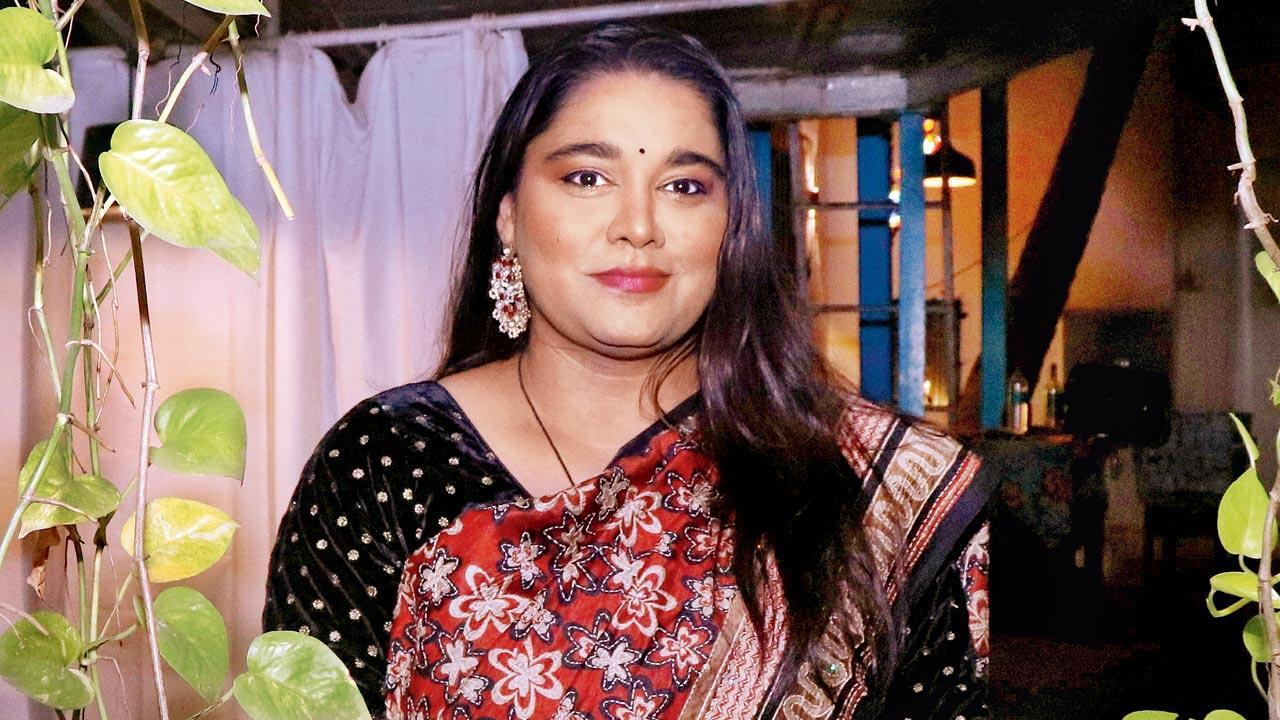Psychologist Scherezade Siobhan uses stories gathered over the years and turns them into a healing process in her new book

Scherezade Siobhan says her book is a memoir, but it is also an amalgamation of stories gathered over 20 years of practice. Pic/Anurag Ahire
As an active social media user and someone who is resolute about mental health awareness, this writer’s favourite tweet by Scherezade Siobhan is, “When someone criticises you and says they are just being ‘brutally honest’, they are more interested in brutality than honesty.” The psychologist posted this on Twitter, addressing it to her teenage self, but it struck a chord, not only for its truth but its compassion.
ADVERTISEMENT
Which is why it is no surprise that Siobhan’s book takes an empathetic and kind view towards mental health issues, some of which are openly talked about, others grossly under-discussed. In a video call earlier this week, Siobhan tells mid-day that That Beautiful Elsewhere (HarperCollins India) is an intersection of her observations over 20 years of practice and her own internal journey.
“The title refers to the temptation of a better, safer space we all seek,” Siobhan says. “It is a memoir but it is also an amalgamation of the cases I have seen.”
The 39-year-old, who is Indian and Romani, witnessed her mother struggle within an abusive marriage, and was diagnosed with clinical depression as a teenager. Later, she too was in a violent relationship and dealt with the post-traumatic stress disorder (PTSD) that followed. Her book is a collection of 10 stories that talk about subjects such as depression and PTSD, but also starts conversations on under-discussed topics such as male childhood abuse and mental health challenges of sex workers.
“No one talks about the fact that sex workers have no access to mental health support, or the connection between male child abuse and patriarchy,” she says, “I was really impressed with an observation made by Terrence Real who has done a lot of work on masculinity. He says that when he started his research, he thought that any form of injury, physical or psychological, is an outcome of masculinity. Later on, though, he discovered that you have to sustain injuries in order to attain masculinity, like football players flaunting their injuries.”
Much of what Siobhan talks about in the book is based on childhood trauma discovered in the direct links between the issues that her patients face and their growing up experiences. For instance, she finds that a person procrastinates not due to laziness, but because they are afraid of consequences or the situation. It could be that their childhood was spent hiding in the closet, waiting for their parents to stop fighting… their default response is to wait it out until the situation has passed.
The observation took this writer back to a conversation with a friend, a man in his late 30s, who witnessed his father repeatedly assault his mother. As a result, this friend’s default response to anger, including by his girlfriend, was to freeze. His brain anticipated violence to follow anger.
“It is easy to slap a diagnosis on someone without understanding what they went through in their formative years,” Siobhan recalls. “Many abused children become custodians of other people. Growing up, I was always the person who would not drink at a party to ensure my friends got home. It was never even a discussion, it was just the role I always assumed.
“People would always say I am mature beyond my years. But that’s the thing: Nobody should have to be mature beyond their years.”
Siobhan’s personality was also shaped by the fact that she belongs to a marginalised SC/ST caste. While growing up in Indore, she remembers her grandfather building a library because he was denied access to one. Education has always been important in her family—everyone except her sister and herself is a doctor.
“I did toy with the idea,” she says, “but discovered that I couldn’t stand blood. Ultimately, after many odd jobs, I got a degree in psychology. My diagnosis contributed greatly towards this because I could not find the kind of help I needed.”
Compiling the book took Siobhan the better part of 10 years, with the last nine months spent feverishly editing in seclusion in Scotland. She always wanted to write a book, because it is, in her words, “the last non-content form of engagement in a content-driven world”.
“Apart from catharsis, I just needed to put it out there,” she says, “Many people say their life will begin after they have healed; but their life is going on even as they are healing. There is no beautiful elsewhere, it is right here.”
 Subscribe today by clicking the link and stay updated with the latest news!" Click here!
Subscribe today by clicking the link and stay updated with the latest news!" Click here!







